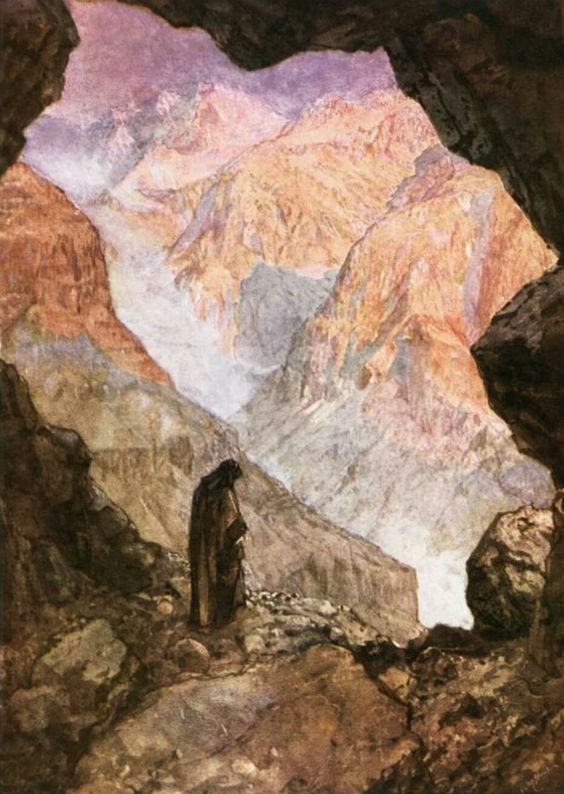
William Brassey Hole (1846-1917)
Today’s song from Sing Praise is, perhaps we should say, the title track: “We sing your praise, eternal God” by Alan Gaunt. Verse 3 gives a clue to its origins: references to wind, earthquake and fire (representing the turmoils of life that “kill love and stifle prayer”) suggest it’s based on Elijah’s experience in the desert cave in 1 Kings 19, where he pours out his troubles in prayer before experiencing these natural forces in which he failed to find God.
A parallel theme, also found in that desert experience, works its way through the hymn, at least in verses 1,2 and 4: that of sound and silence. “We can never match your love, however loud our songs” … “Your love which comes so silently through all the noise we hear” … “No sound on earth can drown the silence we have heard”. God revealed his love for Elijah, and comforted him, through silence, not speech or natural forces. The right balance between work, worship and contemplation in the Christian life is difficult to achieve, especially for those of us who prefer action to stillness, but sometimes stillness is what we need.
Although Elijah went away from Horeb refreshed by the revelation of God in the silence, it was not to a monastery for more of the same, but back into action, and indeed into danger. The last verse puts this quite clearly: “It [God’s Word in silence] comes to guilty, broken hearts, with challenge and release; prepares us for self-sacrifice and speaks eternal peace”. As I wrote yesterday about the hymn “We do not hope to ease our minds”, the Christian life is never meant to be only about forgiveness, silence and inner peace, although they are part of it. They are the basis of an active faith that has to take risks and face difficulty.